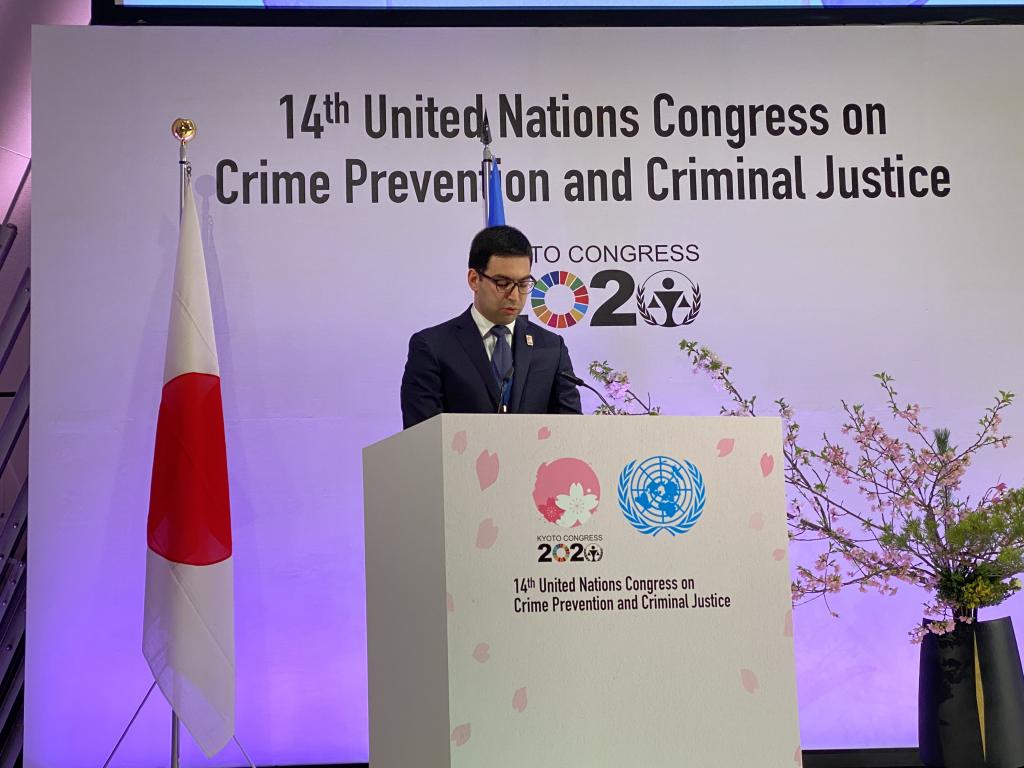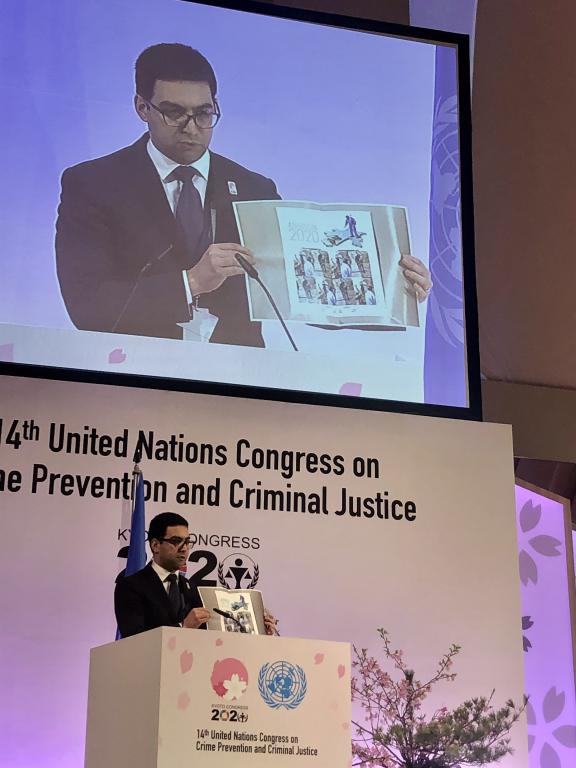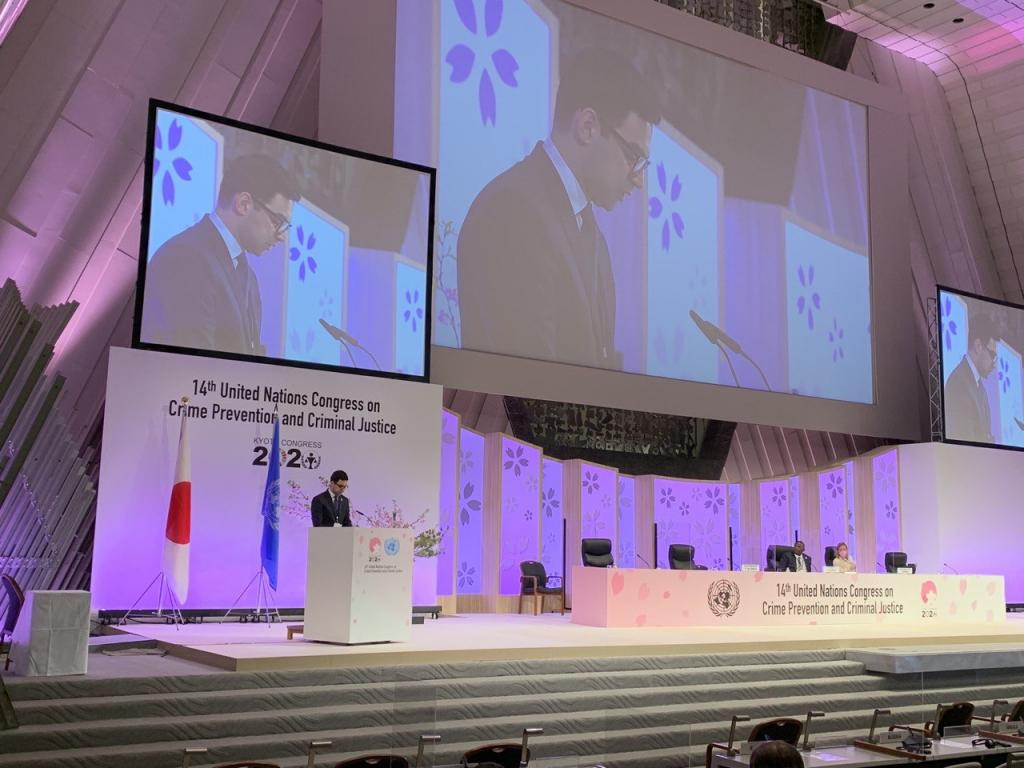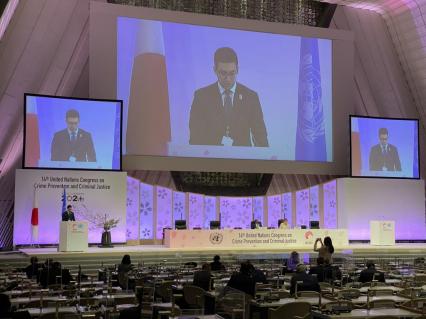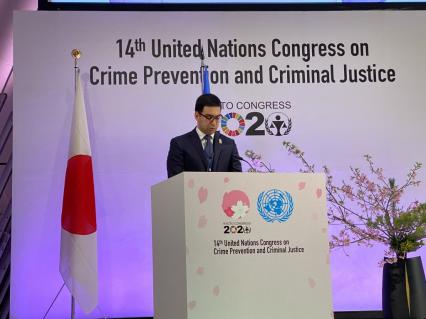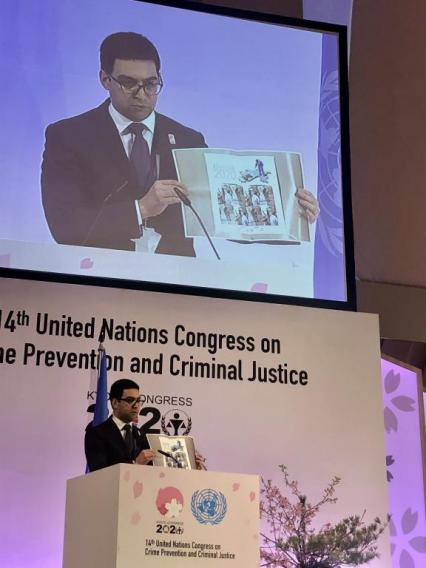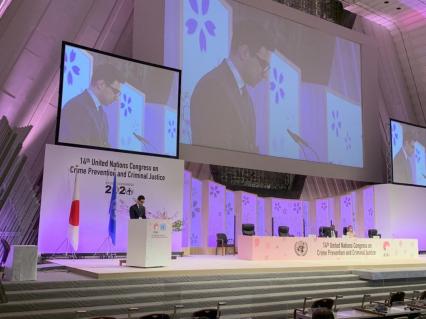Azerbaijan and Turkey must be held accountable. In Japan, Rustam Badasyan presented the war crimes committed in Artsakh
07/03/2021

Minister of Justice Rustam Badasyan is in Kyoto, Japan from March 5 to 11, 2021. The Minister participates in the 14th UN Congress on Crime Prevention and Criminal Justice (UNODC). It is also attended by Deputy Foreign Minister Artak Apitonyan and the Head of the Criminal Legislation, Penitentiary and Probation Policy Development Department of the Ministry of Justice Arpine Sargsyan. In his March 7 speech, Minister Badasyan thanked Japan and the UNODC Secretariat for organizing the event and noted that UN platform provides a good opportunity for governments to discuss the issues of crime prevention, identify criminal justice issues, as well as introduce the necessary mechanisms and toolsets. According to the Minister, since the Velvet Revolution of 2018, Armenia has embarked on an ambitious reform agenda with new determination, made significant progress in promoting the culture of legality, preventing crime and improving the legal framework for criminal justice. Referring to the process of judicial-legal reform, Rustam Badasyan underlined that the primary goal is to ensure the independence of the judiciary and strengthen the public confidence in the system through the introduction of balanced mechanisms for checking the integrity of judges and other tools. Speaking about the other priority of the Government's agenda - the fight against corruption, the RA Minister of Justice presented the institutional solutions envisaged by the Strategy, aimed at prevention, investigation and education. He then referred to the criminal justice reforms, noting that they are based on a people-cantered and humane approach to the transition from punitive to restorative justice, which is reflected in the new draft Criminal and Criminal Procedure Codes. As a key direction of the fight against crime, the Minister singled out the fight against criminal elements conditioned by the public demand to eliminate the negative impact of the criminal subculture and the legislative changes implemented for that purpose. Minister Badasyan touched upon the issues of hate speech, noting that this issue is urgent for Armenia, as the Armenian people have been victims of discrimination, persecution, hate crimes and genocide throughout the whole history due to the intolerance of the ethnic, religious and cultural identity. "In this context, the Armenian delegation has initiated inclusion of a separate paragraph on hate crime in the Kyoto Declaration," Rustam Badasyan noted, emphasising that hate crimes and identity-related crimes are the first step that can lead to serious crimes against humanity, including war crimes and ethnic cleansing. "I believe that impunity for past crimes, the justification and denial thereof pave a way for resurgence of violence and new atrocities," the RA Minister of Justice emphasised. He cited the vivid example of the Turkish-Azerbaijani aggression in the
Nagorno-Karabakh conflict zone in September 2020, the involvement of mercenary terrorists from Libya and Syria to fight against Armenians, emphasising that the causes of the first war in Nagorno-Karabakh in the early 1990s was conditioned by hate towards Armenians, discrimination, and denial of fundamental human rights as well. "Azerbaijan's anti-Armenian policy, which has been promoted for decades, has found its most inhuman expression during the recent aggression against the people of Artsakh, which was accompanied by war crimes and crimes against humanity. One of the most notable examples of such crimes is the use of cluster munitions against civilians, targeting and destroying Armenian cultural heritage, and use of banned phosphorous weapons, including against civilians sheltered in the forests and forcibly displaced, causing enormous damage to both humanity and the environment," Rustam Badasyan said, citing as another evidence Azerbaijan's attempts to grossly violate the Geneva Convention on the Treatment of Prisoners of War by refusing to return Armenian prisoners of war and other prisoners, including women.
"The recruitment of foreign terrorists by Turkey, the subsequent deployment thereof in the ranks of the Azerbaijani Armed Forces for military operations against Artsakh, is another serious crime committed by Turkey and Azerbaijan in gross violation of all international norms. Numerous evidences from relevant sources testify that Turkey and Azerbaijan support and contribute to the increase and spread of the terrorist threat in our region. Therefore, we believe that the international community should join the efforts to counter this threat, to bring to justice the supporters and perpetrators of this crime," Rustam Badasyan declared, welcoming in this context the fact that the Kyoto Declaration addresses the crime of terrorism.
The Minister once again thanked the organisers for the warm reception and wished all the participants an effective discussion.

